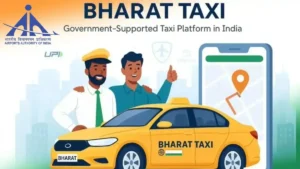The Indian Railway Catering and Tourism Corporation (IRCTC) has partnered with Swiggy, a leading food delivery platform in India, to facilitate the delivery of pre-ordered meals booked by passengers through IRCTC’s e-catering portal. This collaboration aims to enhance convenience and choice for railway travelers.
Expansion Plans
- Initially, Swiggy’s services will be available at four major railway stations – Bengaluru, Bhubaneswar, Vijayawada, and Visakhapatnam.
- IRCTC plans to extend this service to more stations after completing the initial phase, broadening its reach and catering to a larger demographic of passengers.
E-Catering Service Integration
- In a recent BSE filing, IRCTC revealed that the e-catering service, facilitated through Bundl Technologies Pvt. Ltd. (Swiggy Foods), could soon become available to passengers.
- This integration marks a significant step forward in leveraging technology to streamline food delivery processes and enhance customer satisfaction.
Strategic Alliances
- IRCTC’s collaboration with Swiggy is part of its broader strategy to forge partnerships with leading players in the food delivery industry.
- Earlier, the corporation joined forces with Zomato to offer similar services at select railway stations, including New Delhi, Prayagraj, Kanpur, Lucknow, and Varanasi.
- These alliances aim to diversify food options for passengers and improve service quality.
Impact on Swiggy
- For Swiggy, this partnership signifies a significant business opportunity, given the substantial passenger traffic across Indian railways.
- As the company prepares to enter the stock market with an anticipated IPO launch, the collaboration with IRCTC is expected to bolster its market position and investor confidence.
IRCTC-Swiggy Collaboration Redefines Dining Experience
- The partnership between IRCTC and Swiggy represents a significant milestone in the evolution of railway catering services in India.
- By harnessing technology and forming strategic alliances, both entities aim to redefine the dining experience for railway passengers and unlock new growth opportunities in the food delivery market.




 Why the Adani-Marseille Pact Could Be a ...
Why the Adani-Marseille Pact Could Be a ...
 AIIA Signs MoU with General Insurance Co...
AIIA Signs MoU with General Insurance Co...
 Bharat Taxi Partners with AAI to Launch ...
Bharat Taxi Partners with AAI to Launch ...








